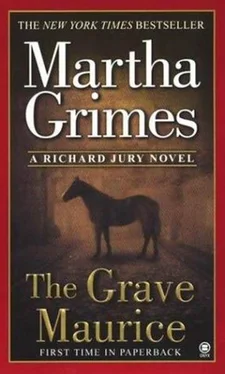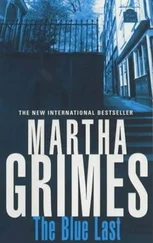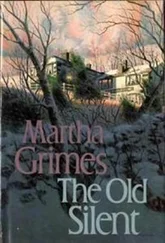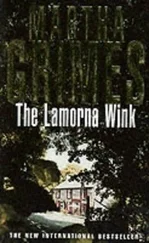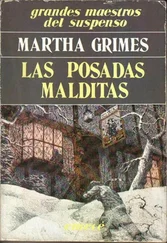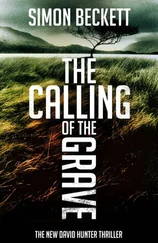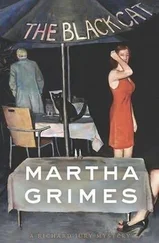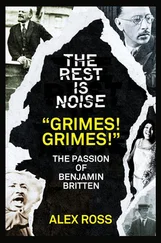The Grave Maurice had its foot in the door of “hovel-like.” Melrose looked all around and made his assessment, pleased. For some reason, he could always appreciate a hovel; he felt quite at home. The incomprehensible barman, the patched window, the broken table leg, the streaked mirror, the clientele. The two women near him were a cut above the other customers. They were well dressed, the dark-haired one quite fashionably, in a well-cut black suit and understated jewelry. The blond one, whose profile Melrose glimpsed, appeared to know the barman (even to understand the barman) with his raffishly wound turban. After he returned, smilingly, with the refills and Melrose’s fresh drink and then took himself off, the dark-haired woman picked up their conversation again. The blonde was doing the listening.
They were talking about someone named Ryder, which immediately made Melrose prick up his ears, as this was the name of the doctor who had just departed and whom, he supposed, the one woman must have recognized. But he was rather surprised to hear him further referred to as “poor sod.” The second woman, whose voice was distinct while at the same time being low and unobtrusive, asked the dark-haired one what she meant.
Melrose waited for the answer.
Unfortunately, the details were getting lost in the woman’s lowered voice, but he did catch the word “disappeared.” The dark-haired woman dipped her head to her glass and said something else that Melrose couldn’t catch.
But then he heard, “His daughter. It was in the papers.”
The blonde seemed appalled. “When was that?”
“Nearly two years ago, but it doesn’t get any-”
Melrose lost the rest of the comment.
The one who had made it shrugged slightly, not a dismissive shrug, but a weary one. Weary, perhaps, of misfortune. If she was a doctor too, Melrose could understand the weariness.
Then she said, “… brother was my… killed…”
The blonde made a sound of sympathy and said, “How awful. Did-”
If only they’d stop talking clearly on the one hand and whispering on the other! Melrose, who kept telling himself he couldn’t help overhearing this conversation, could, of course, have taken his beer to a table, and he supposed he would if his presence so close beside them got to be a little too noticeable. But he wanted to hear whatever he could about this doctor’s daughter; it sounded fascinating. He thought the phrase “poor sod” suggested some unhappy tale and he was always up for one of those. Sort of thing that makes you glad you’re you and not them. How morbid.
He then heard something about insurance and the dark-haired woman was going on about South America and a warmer climate.
She appeared to be planning a trip. He didn’t care about this; he wanted to hear more about the person who had disappeared. The blonde occasionally turned to retrieve her cigarette, and then Melrose could pick up the drift.
“-this doctor’s daughter?”
The woman facing Melrose nodded. “So it never ends for him… closure.”
“I hate that word,” said the blonde, with a little laugh. (Melrose was ready to marry her on the spot. Inwardly, he applauded. He hated the word, too.)
“All it means is that something’s unended, unfinished. Why not just say that?”
The blonde was not in the mood for a semantic argument. “There never is, anyway,” she said, slipping from the stool.
“What?” The dark-haired woman was puzzled.
“Closure. Everything remains unfinished.”
The dark-haired woman sighed. “Perhaps. Poor Roger.”
Roger Ryder, thought Melrose. When the blonde caught Melrose looking and listening, she gave him a rueful half smile. He pretended not to notice, though it would be difficult not to notice that mouth, that hair. Melrose paid for his beer and slid off the stool.
His daughter. Two years ago something had happened to her, and it hadn’t been death. Death would have closed it. The girl had disappeared. Had something happened in South America? No, he thought that must be another story altogether. On the other hand, Ryder’s daughter’s disappearance- that had been in the papers. But Melrose wouldn’t have to search the Times.
Roger Ryder was Richard Jury’s surgeon.
Melrose had spent more time in Jury’s hospital room than out of it in the past week. For thirty-six hours, Jury had lain in a coma, which he dropped into just after Melrose had found him lying on that dock, as if able to relax his own efforts to hold on to life, now that someone else could do it for him. Melrose and Benny had found him. Melrose and Benny and the dog Sparky. Most definitely Sparky. For it was Sparky (one could say) who had found him and had saved Jury’s life. Sparky was the dog of the hour, a dog’s dog, a hero’s hero. Had Benny not been searching for Sparky along the Victoria Embankment, Richard Jury would be dead.
“No question of that,” Dr. Ryder had said. “Another twenty minutes-?” The doctor had shrugged away the outcome.
Jury’s nurse, Nurse Bell, had said (more than once), “Lucky, you are, my lad,” as she’d strong-armed Jury away from the pillows behind him so that she could plump them.
Which was, as far as Melrose was concerned, all she was good for. Melrose couldn’t abide that “lucky” response to disaster. Had his limbs been blown to smithereens and only one arm left-no, no, make that one stump of arm left, Nurse Bell would say, “Lucky you, at least you’ve got your stump. Could’ve been worse.”
As soon as she’d whisked herself off in a crackle of starched uniform, Melrose went over to the bed and messed the pillows about.
Crossly, Jury said, “What in hell are you doing? Isn’t it enough to have that simpering nurse about?”
“I’m just unplumping them. There.”
A sanguine Sergeant Wiggins said from his chair, “She’ll just be back and plump them again.”
“Rats,” said Melrose, returning to his folding chair. Wiggins had the only chair with armrests, and he was making the most of this find as he raked through a basket of fruit sent by some well-wishers in Victoria Street.
“What,” asked Jury, “are you in such bad humor about? You didn’t get shot.”
Melrose was looking out of the window. “Your nurse puts me in mind of one of my nannies.”
“So you’re reverting to nanny behavior. Well, that’s grown-up, that is.”
Wiggins’s rather condescending air was prompted by his having been in hospital himself not long ago (although certainly not from stopping a fusillade of bullets). Right now he was handing over a paperback book to Jury. “It was Mr. Plant himself who brought me this when I was in the Royal Chelsea.” He made it sound like an heirloom. “I think you might like it; it more or less deals with our predicament.”
Our? wondered Jury, who thanked Wiggins. “The Daughter of Time,” Jury said. “Josephine Tey.” He studied the cover. He wondered how this dealt with “our” predicament. “You know, you two are getting more mileage out of my hospital stay than I am.” He fixed first on Melrose. “You get to work out your childhood aggressions, and you”-he turned to Wiggins-“get to relive your hospital adventure in South Ken.”
“Now, now-” Nurse Bell was back already. “We mustn’t get excited and upset.” She handed Jury a plastic cup with a straw. “This will make you feel ever-so-much-better.”
“I already feel ever-so-much-better.” He made a face at the cup.
“I had a cup just like that,” said Melrose, “when I was three. Only I could drink without a straw.”
“And here your friends have come to see you-”
Читать дальше
